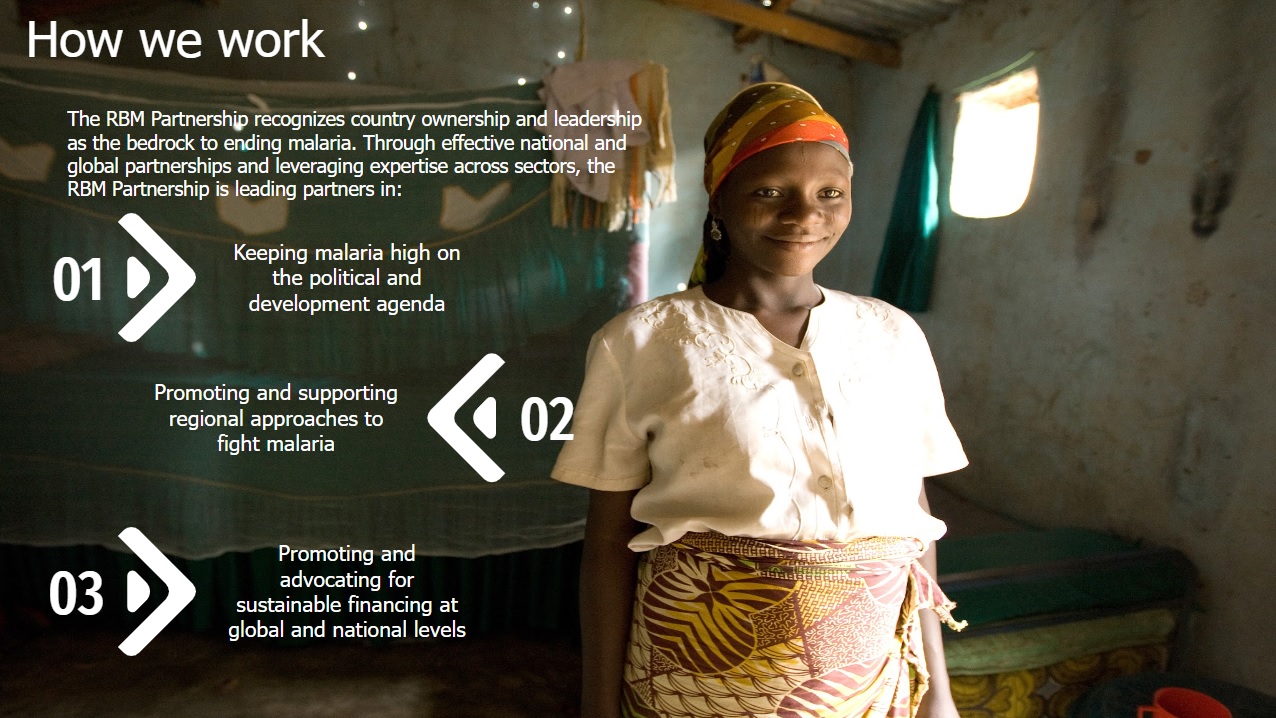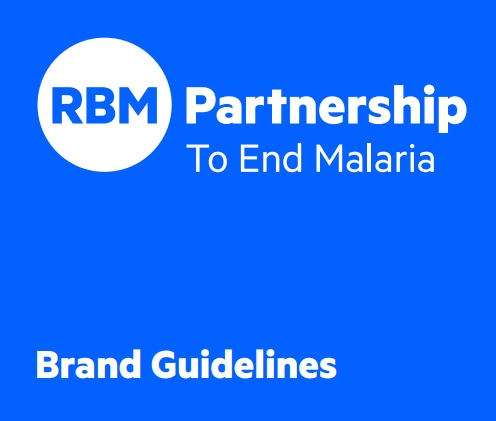The RBM Partnership to End Malaria is the global platform for coordinated action against malaria. It mobilises for action and resources and forges consensus among Partners. It was launched in 1998 by WHO, UNICEF, UNDP and the World Bank in an effort to provide a coordinated global response to the disease.
RBM's strength lies in its ability to form effective partnerships both globally and nationally. Partners work together to scale up malaria-control efforts at country level, coordinating their activities to avoid duplication and fragmentation, and to ensure optimal use of resources. RBM's overall strategy aims to reduce malaria morbidity and mortality by reaching universal coverage and strengthening health systems.
The RBM Partnership Secretariat is hosted by the United Nations Office for Project Services (UNOPS) in Geneva, Switzerland.
What does RBM stand for?
Formerly known as Roll Back Malaria, the RBM Partnership to End Malaria has changed its name to reflect the opportunity the world has to end the disease for good, and our ambition to make it happen.


